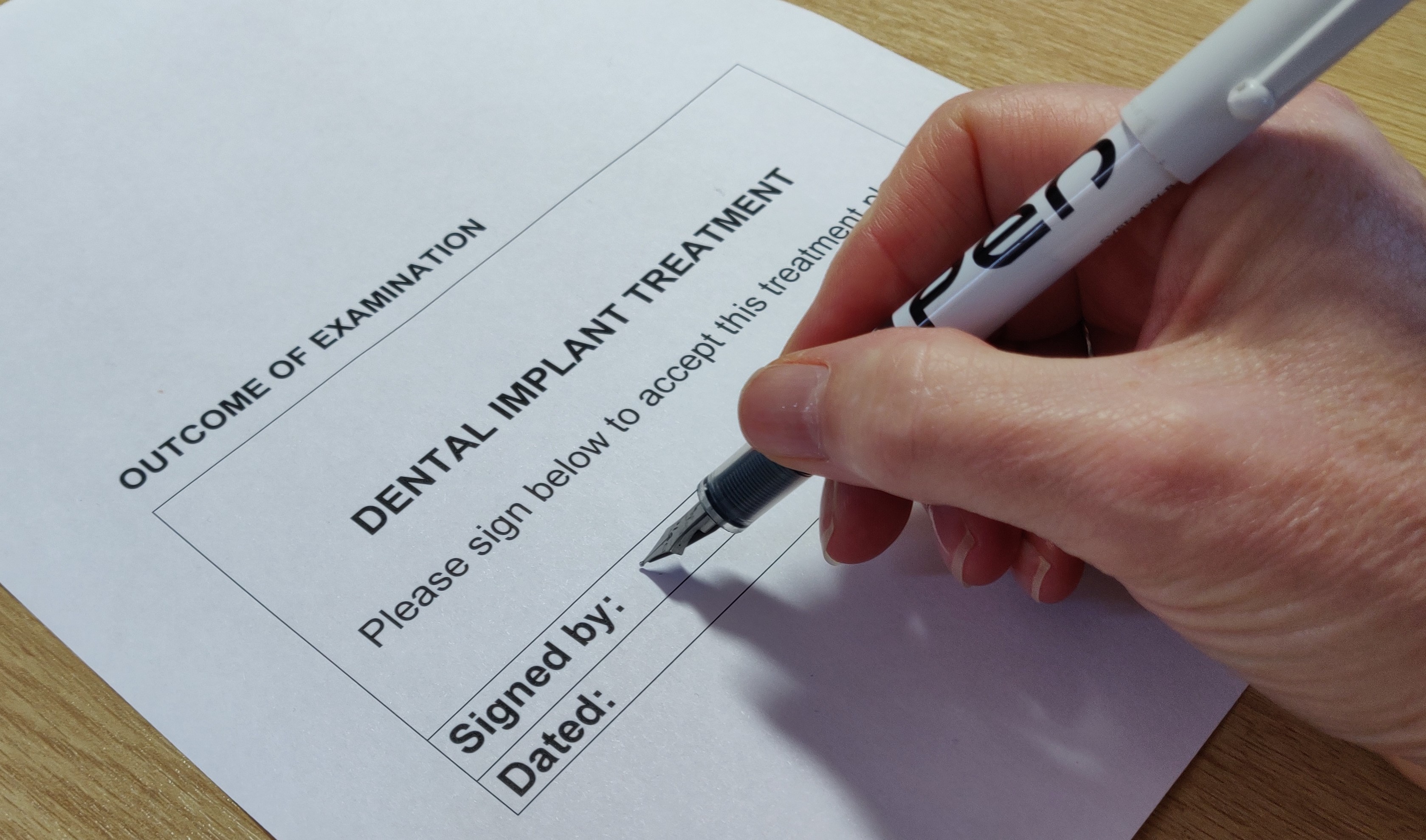Eight things to know before accepting an implant treatment plan

So, you have received a free preliminary consultation from an implant dentist featured on click4teeth. During this meeting, you wisely asked some questions to make sure you fully understood the benefits of dental implant treatment. You’ve decided to proceed with a clinical examination, and afterwards your dentist will prepare a costed plan. Here are a few more things you might wish to know before commencing with the treatment:
Contents
- Will I have a temporary tooth or teeth during the course of treatment?
- Are there any payment plans available?
- Will I need to take time off work?
- Is dental implant placement painful? Will I be offered anaesthesia or sedation?
- Will I require someone to accompany me to support me after surgery?
- Will my face be swollen after the placement?
- How long will my mouth take to heal?
- Can I smoke during the course of treatment?
Will I have a temporary tooth or teeth during the course of treatment? If the teeth involved are at the front of the mouth and visible, in some cases, you may have a temporary crown or bridge fitted to the dental implants. This allows the implant dentist to check the implants and determine when they are ready to support a permanent tooth or teeth. The temporary teeth also give the gums an opportunity to mature around each implant and help with aesthetics.
If the dental implant is placed towards the back of the mouth, it may be completely covered and hidden beneath a layer of gum and you could have a gap before the permanent crown is fitted.
Alternatively, the dentist may attach a healing abutment (sulcus former) to the implant and close the gum around it. This can help to shape the gum during the healing phase and avoids the need for another surgical appointment later to expose the implant.
You may be suitable for fixed teeth in a day, a technique where a whole jaw of missing and/or failing teeth is replaced with dental implants in a single visit. Temporary teeth are fitted to the implants and will remain in place while the implants fuse to the jaw bone. After three-to-six months, a permanent set of teeth are fitted, after the healing period. Your dentist will have to establish whether you are suitable with a full, clinical evaluation.
Are there any payment plans available? Dental implant treatment is not usually covered by dental insurance, or available on the NHS outside of exceptional circumstances. Most dentists can offer you a payment plan if you wish to spread the cost over a period of months. Ask your dentist or treatment coordinator for details.
Will I need to take time off work? It is unlikely that you will need to take time off work apart from the day of your surgery. However, try not to arrange any big commitments for a few days after the treatment. Physically strenuous activity can cause throbbing and lead to additional bleeding.
Is dental implant placement painful? Will I be offered anaesthesia or sedation? Patients have reported that having dental implants can be far less painful than having a tooth removed or root canal treatment. The placement of dental implants is generally easier than most people imagine. Implant dentists apply local anaesthetic, however many can offer you sedation if you request it.
It is likely that you will experience no more than mild discomfort after having dental implants. Your dentist may suggest that you take your first dose of over-the-counter pain killers before the anaesthetic wears off and then take them regularly at the maximum stated dose for the first two days after your surgery.
Any discomfort following surgery should subside gradually each day. If after a few days you experience increasing pain and swelling, you must contact your dentist, who will advise on the appropriate aftercare and medication to keep you comfortable.
Will I need someone to accompany me to support me after surgery? If you opt for sedation, a responsible adult must accompany you to the appointment, remain at the surgery and escort you home afterwards.
Will my face be swollen after the placement? You may experience swelling and/or bruising following your treatment. This is normal and can be reduced by the immediate use of ice packs (or a bag of frozen peas). Another click4teeth article, “What should I expect after dental implant treatment”, explains in further detail.
How long will my mouth take to heal? There is usually a period of healing lasting from six weeks to six months. The stitches are normally removed or dissolve by themselves after seven to fourteen days. You can find out more about the process of healing by clicking here.
Can I smoke during the course of treatment? Your dentist will want to ensure your mouth is in the best of health before you undergo any treatment. Smoking can delay healing, so your dentist may encourage you to reduce the number of cigarettes smoked, or quit entirely. Learn more about the impact of smoking on dental implant treatment.
Click4teeth is the UK’s largest directory of clinics providing tooth implants to replace missing teeth. We can help you find an implant dentist, located near you. Usually, no referral is necessary from your general dental practitioner. Browse our UK directory of implant dentists.
